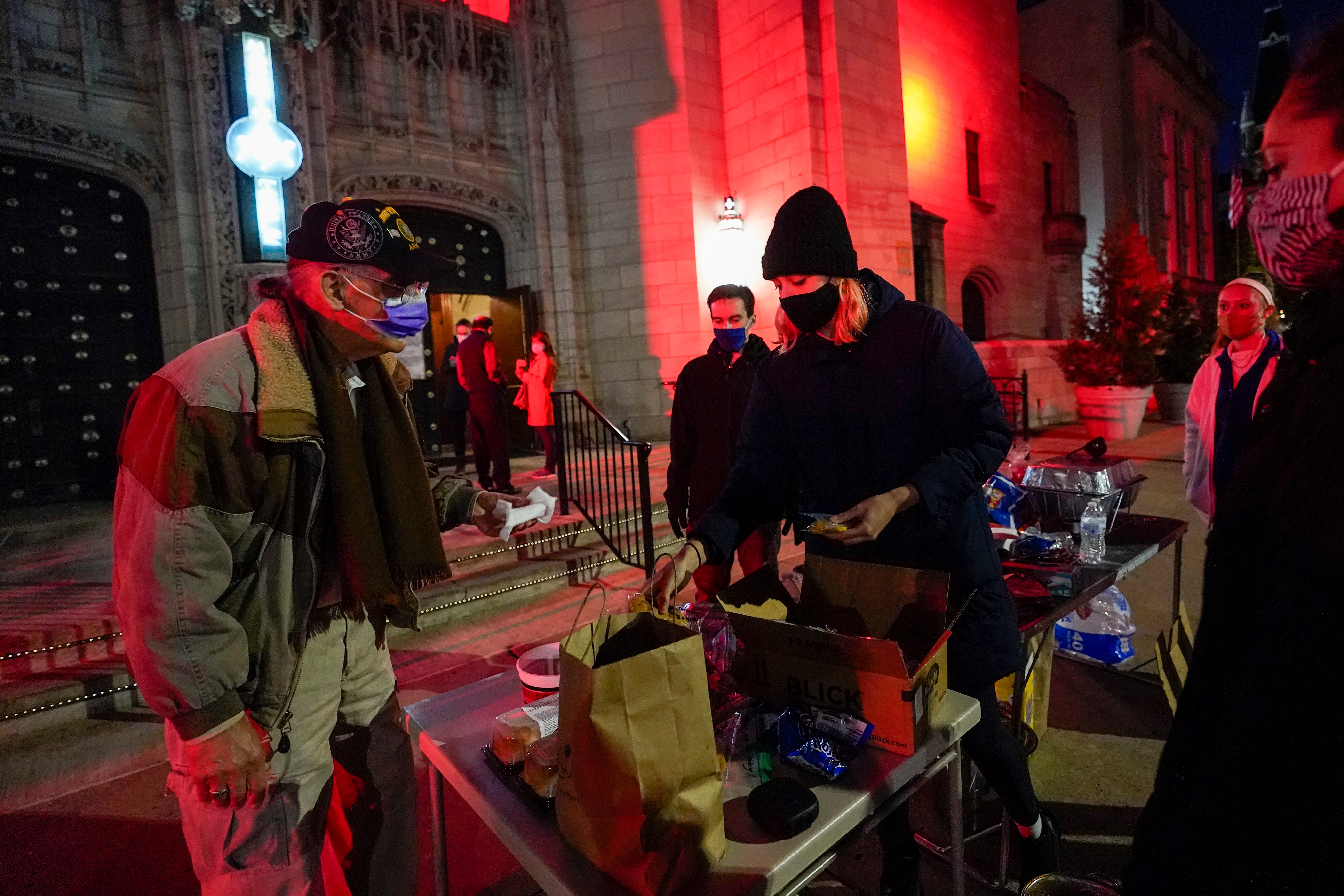Pennsylvania emerges as online misinformation hotspot
Pennsylvania has emerged as a hotspot for online misinformation on Election Day, with Facebook and Twitter trying to quickly take down false posts about voting in the state so they don’t confuse voters or stoke doubts about the integrity of the election

Your support helps us to tell the story
From reproductive rights to climate change to Big Tech, The Independent is on the ground when the story is developing. Whether it's investigating the financials of Elon Musk's pro-Trump PAC or producing our latest documentary, 'The A Word', which shines a light on the American women fighting for reproductive rights, we know how important it is to parse out the facts from the messaging.
At such a critical moment in US history, we need reporters on the ground. Your donation allows us to keep sending journalists to speak to both sides of the story.
The Independent is trusted by Americans across the entire political spectrum. And unlike many other quality news outlets, we choose not to lock Americans out of our reporting and analysis with paywalls. We believe quality journalism should be available to everyone, paid for by those who can afford it.
Your support makes all the difference.A single voting machine jammed for just minutes Tuesday morning at a precinct in Joe Biden’s hometown of Scranton, Pennsylvania -- but misleading posts on Facebook and Twitter claimed multiple machines there were down for hours.
Pennsylvania emerged as a hotspot for online misinformation on Election Day. Facebook and Twitter scrambled to take down false posts about polling locations in Scranton, Philadelphia and beyond to minimize the spread of misinformation and prevent it from sowing doubt about the election process.
Misleading claims about voting in the key battleground state were shared thousands of times on Facebook and Twitter — even reaching their way to the Twitter feed of the president’s son, Donald Trump Jr
“The fact that we are unlikely to know the result of that pivotal race tonight means that any incidents will receive disproportionate attention because there won’t be a resolution to the race,” said Emerson Brooking, a disinformation fellow at the Atlantic Council’s Digital Forensic Research Lab, a Washington think tank.
Results in the closely watched state might be delayed because of the surge of mail-in ballots this year, even though that delay doesn’t indicate a problem with the vote.
Conservative social-media influencers and websites spread a video purporting to show voting machine outages in the Scranton Cultural Center at the Masonic Temple throughout the late afternoon and evening. In fact, just one machine had only briefly been jammed and was restored within minutes Tuesday morning, Lackawanna County spokesman Joseph D’Arienzo said.
Twitter and Facebook also removed a false post from an Instagram user who claimed to be discarding hundreds of ballots cast for Trump while working at a polling place in Erie County.
“The person making the statements does not work in any way with Erie County or have any part of Erie County’s election process,” the Erie County Board of Elections Chair Carl J. Anderson III said in a statement. “In fact, the individual is not a registered voter and is not believed to be a resident of Erie County, Pa."
Facebook said it confirmed with authorities that the claims were inaccurate and was working on removing the posts. Twitter removed screenshots and short videos of the claim, which was originally posted on Instagram by the person claiming to be a poll worker, though not before it gained some traction on the platform, including a retweet from Trump Jr.
Twitter also took action on several tweets from the @PhillyGOP account, which is run by the Republican Party of Philadelphia, and at least four from the Trump campaign's director of Election Day operations, Mike Roman.
One of the misleading tweets was a photo of a poster endorsing Democratic candidates that was hung on the building of a polling site in northeast Philadelphia. The image was shared more than 10,000 times with Twitter users saying it was a “violation” of election laws.
Not so, said the Philadelphia District Attorney’s Office, which tweeted in response that the polling place is “located in an interior room and the sign in question is further than 10 feet from it.”
Before Election Day even started, Pennsylvania seemed poised for an onslaught of misinformation. In October, the state was mentioned the most — more than 200,000 times — in misleading claims of voter fraud on websites and social media platforms, according to data collected by media intelligence firm Zignal Labs.
___
Seitz reported from Chicago. Ortutay reported from Oakland, Calif. Associated Press writers Ali Swenson in Seattle, Mark Scolforo in Harrisburg, Pennsylvania, Beatrice Dupuy and Arijeta Lajka in New York contributed to this report.